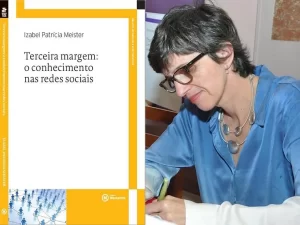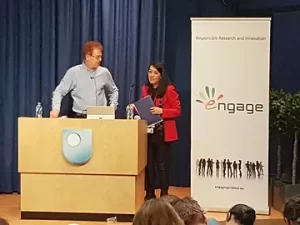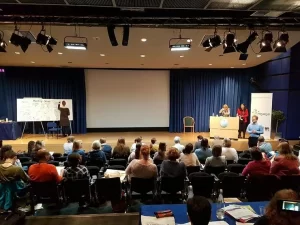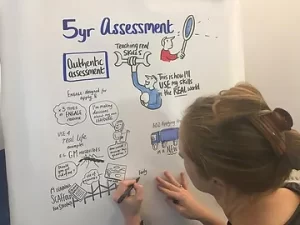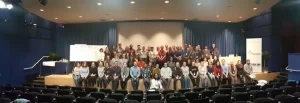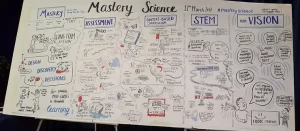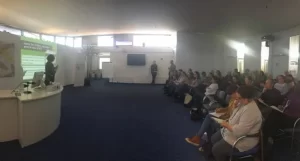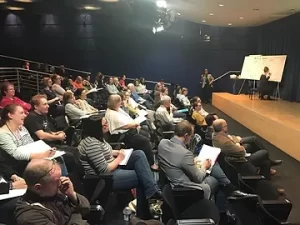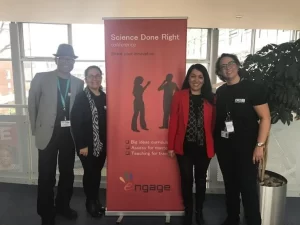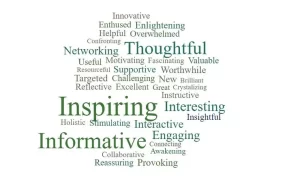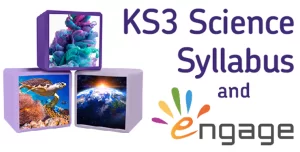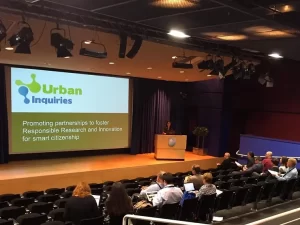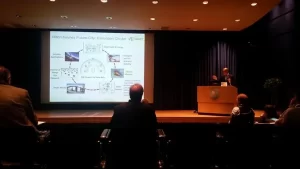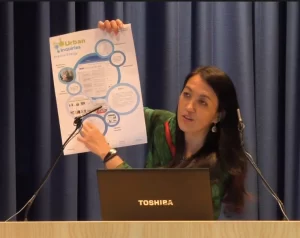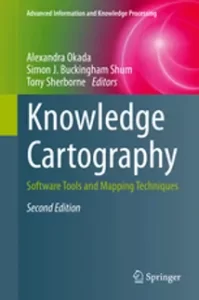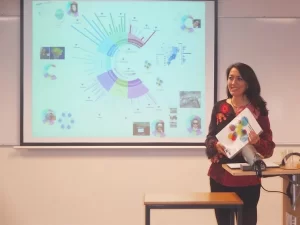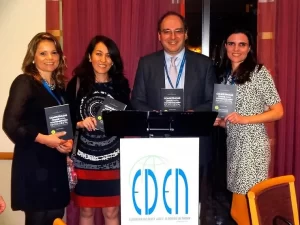Alexandra Okada, Tuesday 11 November 2014
Dr. Izabel Meister, who was a PhD student in KMi in 2012, has just published a book about her thesis, which was launched today in Brazil.
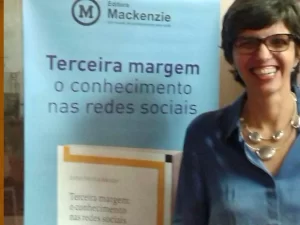
Her thesis co-supervised by Dr. Okada – “The weaving of knowledge in social networks habitat of collective intelligences” – focused on social networks as a space of creation and acquisition of knowledge. She analyzed some social networks in FaceBook and in the OER Tool-Library of the European Project: OpenScout developed by KMi team: Dr. Alexander Mikroyannidis, Dr. Suzanne Little, Dr. Ale Okada, and Dr. Peter Scott.
FOREWORD written by Ale Okada
“The third edge: knowledge in social networks” is an interdisciplinary book that points out the collective intelligence of social networks as well as the convergence and expansion of knowledge from the “Relevant Status”.
The curious title proposed by Izabel Meister is an invitation to reflect on the social network knowledge as a means of transcending the delimited boundaries via the third edge which leads to the break-up of delimited spaces. So, according to Foucault (1997:356) “a place without a place, that exists by itself”; refers to a space without space, or better put, a space of every space. In this sense, the author discusses contemporary knowledge on the web, based on the abundant access to information and sources, in which the process of construction transcends the predetermined spaces and times that were established for this purpose. Here a third way flourishes, which invites us readers to think differently about the construction of knowledge of and within the social networks (Okada, 2014).
This work studies the interdependent processes in which knowledge is updated and expanded to connections between many participants, in a complex, chaotic, and hyperdynamic way – aspects of the web and of the openness movement towards cyberculture studied by many authors (Castells, 2005; Jones, 1998). Nevertheless, “The third edge” proposes a different look at the emergence of collective intelligences which can be activated at any time and space as soon as they have been visualized by the “relevant status”, term defined by Meister as “due to its importance according to its utility, timeliness, or meaning”.
Meister’s contribution offers us a valuable new outlook on Education and Cyberculture through the innovation of the process of construction of knowledge, which is based on her dissertation at Mackenzie University in São Paulo and the Open University in Milton Keynes (UK). At the Open University, she worked at the Knowledge Media Institute on and with open search networks as part of the Colearn project – Collaborative Open Learning (colearn.open.ac.uk).
In the three chapters of this publication, we can find the initial point of this research, the methodology of investigation, and the conceptional and empirical principles of interactive, complex, and chaotic culture, from which social networks emerge. Based on the interconnection of these three seminal references, we can consider the threading of web knowledge and the theory of Relevant Status explained in the last chapters.
This book is a source of discussion for many readers:
- Creators, co-learners, and network users in many fields, including individuals responsible for spreading knowledge and information on social media.
- Researchers and web designers for educational learning that incorporate educational resources on the web and new media;
- Academic researchers in the fields of formal and informal education, including Cyberculture, Online Pedagogy, Teacher Training courses including ICT and Colearn in the digital era;
- Professionals interested in using social network for educational and/or organizational projects;
The objectives of “The third edge: knowledge in social network” for all of us – participants, co-learners, and co-authors of knowledge in 21st-century Cyberculture – are:
- Contributing to an understanding of contemporary education;
- Considering that the social web is a space for the construction of knowledge;
- Understanding that the social networks have different and proper processes of construction of knowledge, with specific issues related to Cyberculture and social webs;
- Understanding that this knowledge can only be provided by relevance in time, based on observed Relevant Status;
- Acknowledging that this process implies collective, collaborative, and open intelligence;
- Emphasizing the fluid and transcendent aspects of the boundaries between work, culture, leisure, and social fields.
When we drive our attention to the fragments of human knowledge within the sophisticated and complex virtual social networks, we shall have to consider the discussion proposed by this book and the invitation to contribute to the reflective discussion on the space of contemporary knowledge. From here arises the opportunity to meet the Third Edge.
